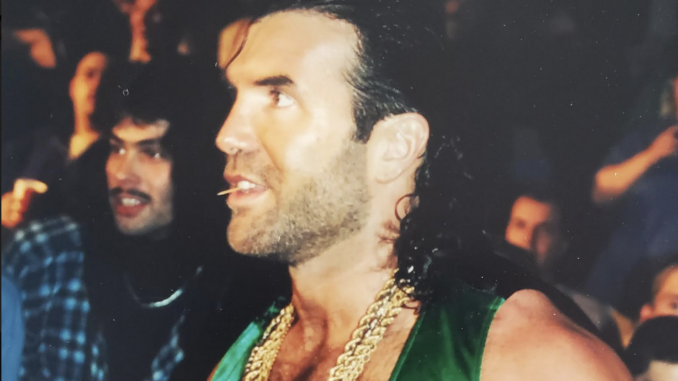
SPOTLIGHTED PODCAST ALERT (YOUR ARTICLE BEGINS A FEW INCHES DOWN)...
The following is part two of my interview with Scott Hall in 2006. He said this was his first interview longer than ten minutes in length. He really opened up for over six hours from two lengthy recording sessions. This is the second installment that we published originally in the Sept. 9, 2006 issue of the Pro Wrestling Torch Newsletter (#931). The entire 19-installment interview is available to read on our PWTorch VIP website “Torch Talk” archives page HERE. (Sign up for VIP membership HERE.)
Below is the original introduction and transcription of the second of 19 installments.
Torch Talk with Scott Hall, pt. 2
Originally Published: September 16, 2006
Torch Newsletter #932
Scott Hall hasn’t done an interview in his career longer than ten minutes or so. Until now. This is part two of his first extended insider interview ever – and since last week, Hall recorded another four hours of “Torch Talk,” so this logs in around seven hours total, among our longest, most in-depth “Torch Talks” ever. It’s also one of our best.
Throughout the interview, Hall marches through his entire career, discusses various controveries from drug and drinking to run-ins with fellow wrestlers (including Goldberg) to what he says was the tipping point in the Monday Night War and how he was an integral part of it, and much more.
Hours of never before told stories, never before heard insight, never before told first-hand accounts of some of the biggest happenings over the past twenty years are all captured in this “Torch Talk.” The following is the second installment, including Hall’s account of his AWA stint, his first WCW stint, his first meeting with Vince McMahon, the birth of Razor Ramon, his thoughts on DX, and more. This portion of the interview was conducted on Sept. 8.
Wade Keller: You indicated you don’t like Magnum T.A. Did you have any run-ins with him personally?
Scott Hall: No. He was a big star when I first got to Charlotte. But I got nothing bad to say about him. I hope he’s doing good. We had a few run-ins, but I ain’t gonna bad-mouth him.
Keller: The Magnum P.I. comparisons aside, you were billed as the next big thing in the AWA in the 1985-’86 era. You were given a lot of pressure early on to produce as a top guy.
Hall: Yeah, but can I tell you something? That ship was sinking. I remember being around the Freebirds. I learned a lot from the Freebirds and that’s where I created the Wolfpac. Because I was such a big fan of the Freebirds, I wanted me, Kev (Nash), and Kid (Sean Waltman) to be the Wolfpac because you know they were the same, but they were different. They were brothers. Michael (Hayes) wore the robe; Terry Gordy wore the vest; Buddy Jack (Roberts) wore the baseball sh–, but it was all the same colors, just like me and Kev and Kid. You always had Wolfpac rules. You never knew which two of the three were going to wrestle, and guess what mother f—er? All three of them aren’t wrestling. I always thought that was somethin’ f—in’ special. It had never been done since them. I don’t know, I just thought that was the sh–.
Keller: That was the era of bookend tag teams and you guys kind of broke that pattern.
Hall: Exactly. Who you wanna see? Two matching guys? “We’re the Road Warriors! Bleaaah!” I just think that’s stale. That’s why I think me and Kev are the best tag team in the world.
Keller: You and Kev or you and Kid?
Hall: Me and Kev, certainly, and Kid’s gonna be there.
Keller: You teamed first with Curt Hennig in the AWA and had a pretty good chemistry. As green as you were at that point, it helped to have someone like Curt there to learn a lot from.
Hall: Curt helped me tremendously. I can’t thank him enough.
Keller: Did teaming with him come first or the friendship?
Hall: I have to say this about Curt. When I moved to Kansas City, I was pretty much in my prime physically. I was f–in’ jacked, bro. As far as Curt knew, I moved there and we were both babyfaces. I was there to take his job, right? You know what, he went out of his way to show me around town. Every road trip we ever made, Curt drove. He used to come to my apartment and pick me up because I didn’t know how to drive in the snow. I’m a Florida boy. But, I mean, he would drive to every town and all the way he was always talkin’ to me, teaching me business, teachin’ me this, teachin’ me that, you know? Another thing, too, is you know what Curt did because he knew it was right because he was second generation? Curt always sold and gave me the hot-tag. He felt that’s what the people wanted to see. He always steered me in the right direction. I learned a few habits from him, but I ain’t gonna dwell on those. But he was an angel as far as I can say professional wrestling wise.
Keller: At that point in the AWA, was Curt’s attitude, We can make this work. Let’s make the AWA competitive and successful again? Or was he looking toward the next step also?
Hall: You know what I did, man? I’m not from up there and it was cold as hell to me, bro. There were a couple of times when I opened my door and it would be like, “Wheewwishheww!” I just closed my door. One time I didn’t even go to a show in Wisconsin. The next day Verne (Gagne) called me and said, “Where the hell were you?” I said, “Verne, there was travelers advisory. They said don’t drive if you don’t have to.” He said, “That doesn’t matter up here. You were supposed to show up at the show.” Blah blah blah blah blah. You see, they’d do all their business in the winter time because, hell, it only gets nice for about three or four weeks up there. And that’s when you can’t get people to sit in the arena. In the winter time, they do go to the shows. They used to pay great, but then in the summertime, you only work once a month. Like, you get paid great, but you only work two, three shows a month. I remember, I went into Verne and said, “Verne, I got to have more money. I can sell suntan lotion on Cocoa Beach and make a couple grand a week. This is your hometown, bro, it ain’t mine.” He went, “The money comes later.” I said, “My bills come right on time every month.” He went, “I can make you a star.” I said, “Verne, I don’t have to be on your TV to feel good about myself. I like who I am.” He goes, “I’m rich!” I said, “Yeah, I wanna be rich, too. How’s it feel?” He said, “It feels great!” I said, “I wanna be rich, too, Verne. What the f–?” So I gave him my notice and I finished up.
Keller: That was the moment you decided to leave, because he wouldn’t give you a raise.
Hall: It was the weather and sh–. Another thing, too. I guess it sounds egotistical, but I did not want to be the champion on a sinking ship. So I passed that belt to Curt. The AWA was going under, man. I did not want to be known as the guy who sank that ship.
Keller: Do you think Curt realized it was going under, too, or was he still thinking we can make this work?
Hall: I think it did wonders for Curt’s career. He got tons of publicity out of it. You know what? I didn’t want the publicity. I didn’t want it. But I’m different than Curt was. I’ve spent so much money on therapy, I’m just trying to figure out who I am, all right?
Keller: You worked with Jimmy Garvin & Steve Regal, too. Buddy Rose & Doug Somers, too. Any thoughts on those four guys?
Hall: I have nothing but the utmost respect for them. Jimmy Garvin’s a pilot now. He flies for Federal Express or something. He was great. Buddy Rose and Doug Somers were great. We didn’t work with them much. They worked with the Rockers the most. That was such a cartoon character. You had the two little pretty boy Rockers, and then you had Buddy and Doug. We didn’t get to work with them that much. We worked with the Long Riders a lot, but I thought they both sucked. God bless Scott Irwin. He was wonderful. His brother Bill Irwin’s a dick and I don’t care if you print that straight out.
Keller: Why is that?
Hall: Because he was a selfish prick. You know why he hated me? Because I was getting a push and he didn’t think I deserved it.
Keller: You weren’t happy in the AWA because of the weather and the pay with Verne. Was the overall attitude in the AWA that it was a sinking ship? I’m interested in this because this was right before I started writing the Torch and I’m fascinated with AWA history. I was a fan then, cheering for you, because Hogan abandoned the AWA and you were the replacement guy.
Hall: You know why Hogan left? You ever heard that?
Keller: I’ve heard a lot of different stories. Hogan told me his version.
Hall: I guess if you heard it from Hulk, you heard the truth.
Keller: (laughs) I wouldn’t go that far.
Hall: What I heard, and I don’t know how accurate it is. I think it’s pretty damn accurate was, Hulk’s not a mark. Hulk’s a businessman. Anybody who doesn’t think that has not spent any time with Hulk. What he wanted was, he had been going around the loop with Nick (Bockwinkel), and let’s face it, Hulk was a monster then. He was, like, 330. He’s wrestling Nick. I like Nick, but Nick does hit little wrestling moves and all his bullsh– and all Hulk wanted was in St. Paul, he just wanted to win the belt. He said, “Look, I’ll drop it back to ya’, but I’ve been promising the fans for months that I’m gonna win the belt. When you’re a babyface, if you don’t win eventually, you’re f—ed. The way I heard it was, Hulk kinda wanted the belt, and they didn’t want to give it to him, and it was adios amigos. He went to Japan then.
Keller: He also had a problem with merchandise money, too. That was at issue.
Hall: Verne was so behind the times on merchandise, I’m sure, any merchandise Hulk was getting was, like, t-shirts. There were no videogames, there were no dolls back then, bro. We’re talking the ’80s.
Keller: I think he started to realize the potential in it. That was the very beginning of Hulkamania. Vince McMahon takes credit for Hulkamania, but it absolutely was exactly the same act in the WWF that it was in the AWA.
Hall: When Hulk first left Verne, he made huge money in Japan. Then he did the movie. When he went to Vince and he got red-hot, he was making ten million a year reportedly, although who knows? There ain’t nobody making ten million a year now.
Keller: Not even close.
Hall: Ten million a year in the ’80s, bro? Hooo.
Keller: Greg Gagne was around then, too. Did you have to deal with him much? Was he helping to run the company at that point?
Hall: Yeah he was.
Keller: Was he competent in his job? Was he a lot like Verne? Was he trying to be better and different than Verne?
Hall: It’s really hard for me to knock Greg because he’s a real kind-hearted person and all that. I actually saw a little footage of him when he inducted his father into the Hall of Fame. Oh my god, he looked rough. But, I mean, to me, I’ve always thought you gotta look like a wrestler.
Keller: He didn’t even try.
Hall: You got any Greg Gagne merchandise in your collection? What about “Jumpin'” Jim Brunzell? Let me get this right. Your finish is a dropkick? I’ll never forget the time, I can’t remember who, but they brought these heels in to work with the High Flyers. The guys said, “What do you guys do? What do you do off the top?” They said, “We don’t do anything off the top?” They said, “Well, you’re called the High Flyers, right?” “Well, yeah, yeah.” I actually thought they were kinda brutal, but you gotta remember, it was simpler times, man.
Keller: The movie, “The Wrestler,” ended with a dropkick. Verne had a soft spot for the dropkick because that was his finisher. He downed Bill Robinson at the end of the movie with it.
Hall: F—in’ Billy Robinson is a dick.
Keller: I’ve heard that. You deal with personally at all?
Hall: I’ve been around him. He was just one of those bitter old school guys. He’s like Lou Thesz, Bruno (Sammartino). “I’m really a tough guy and f— these guys, I didn’t make any money. F— these guys.”
Keller: What about Larry Nelson? He was a cult favorite of mine because he was so off the wall.
Hall: To me, he was a little bit white bread. He was a little bit too much. I prefer the era of wrestling when the announcers started to tell the truth. I liked Jesse Ventura. I liked Gorilla Monsoon. I liked Bobby Heenan. I liked Vince. I liked Perfect. I liked guys where if you missed a move a little bit, they’ll say, “Ah, it looked like they missed him with that on.” I always wanted to wrestle in front of Jesse Ventura. You know why? I knew I could get over without the office holding me back because Jesse would tell the truth. Because if you did something in front of Jesse and it looked good, he’d go, “Wow, that looked good.” At the same time, if somebody did something in front of Jesse and it looked bad – Gorilla, too – they’d go, “I don’t think he caught him with all of that.” I liked that. I think the referees have to have authority. If there’s no rules, there’s no heat. I remember when I first went to work for Eric Bischoff, they were doing a divorce angle between Macho (Randy Savage) and Elizabeth and (Ric) Flair, and he was spending her alimony. And they were doing some other sh–. I said, “Wait a minute, we’re doing a divorce angle?” Guys would do interviews going, “I’m gonna kill you!” I said, “Eric, no, man. No no no. How long can you go with that sh–?” We’ve got a weekly program. The belts have to mean something. It has to. It’s all about winning and losing matches. Like, me and Shawn wrestled for almost three years. Everybody knew we were friends, but it was, “I’m better than you.” “No you’re not.” “Yes I am.” “Well, prove it. I’ll be there. I’m the pretty mother f—er with the velvet black hair. After the match, I’ll meet you in the bar and guess what, I’ll drink it to you, ya’ prick. It’s not a hatred thing. I don’t think hatred draws money. I think all that negativity is the wrong way to go. I watched TNA the other day and it was so bush. I was watching the guys going, “Somebody’s going to die. I’ll do anyyyythiiiinnggg!” I’m thinking, “No you won’t. You gotta be back next week, you f—in’ goof.”
Keller: I’m not crazy about promising death to anybody.
Hall: Did you see TNA where they juiced the tag team champs, Angel (Christopher Daniels) and A.J. (Styles)? So guess what? Forty-five minutes go by, they interview them in the back, and they still got juice. How come they’re not bandaged up? How come they’re not all cleaned up? And why is everybody so mad? That’s so basic wrestling interview 101. “Okay, man, I’m gonna get you, I’m gonna kill ya’, I’m gonna kill ya’.” Why don’t you go, “Okay, you got me, man. You’re pretty tough. Guess what, I’m pretty tough, too, man. I’m gonna heal up. I’m not gonna think about nothing until I see you again.” That’s what draws money. Not this ranting and raving bullsh– that nobody buys.
Keller: If everybody is yelling at the same volume, nobody stands out.
Hall: And they all do it. You can hear it from the kitchen. That’s one thing I learned from Jerry Blackwell. Jerry Blackwell used to talk like this [whispering]. Then he’d get real, real quiet [softer]. Like this. You know why? Because you’re leaning forward to your TV set then.
Keller: I loved Blackwell’s whole act.
Hall: You know why? If somebody’s yelling and ranting and raving, blah blah blah blah blah. F—in’, you can be in the kitchen making a sandwich, it doesn’t matter. You know who I thought was sweet was Jake. I’m a huge fan of Jake the Snake because he had the look, he had the rap, he had the moves, he’s money. There’s a few guys I patterned my career after. Jake, (Bruiser) Brody, and (Stan) Hansen. Not their moves, but they’re mentality. F—, I don’t need to throw the Ricky Steamboat deep armdrag. I need to get over. I want to make money. I want to draw money.
Keller: Let’s jump from the AWA to your first run in WCW when you were renamed the Diamond Studd.
Hall: I was Scott Hall first, bro. I was Scott Hall going nowhere.
Keller: When did the Diamond Studd come up in that run, then?
Hall: Ric Flair was booking. He booked me with Terry Funk twice on TV. The first time I was out with Terry Funk’s daughter all night. I didn’t do nothing’ with her, but I was out all night with her, treating her with a lady. Nothing like that. But the next night that f—er hit me with a branding iron so hard, I got like eight stitches. So blah blah blah, time goes by. I get to next TV, they got me booked with Terry Funk again. I went to Flair – plus I had already called Otto Wanz, this wrestling company in Europe and Austria. I said (to Flair), “Look, I’ve already put the prick over on TV once. I’m not doing it again.” Flair said, “Nobody’s asking you to do it.” I said, “Ric, f– you, man. You’re the one calling the shots, you’re writing the TVs. Don’t f—in’ tell me you didn’t write this down. I’m not doing it. And by the way, I’m giving my two weeks notice. F— you!” So I went and worked for Otto then. Then I was kind of unemployed and I came back from working with Otto. But I left on kind of good terms, you know what I mean? I did jobs on the way out. But not on TV. And then I called (Dallas) Page and now I’m coming back with my wife six months pregnant from Europe. I was just going to go work at Sears. I figured I thought I had it, but I guess I don’t, so f— it. I called Page and told him to get me a job. And so that’s when the Diamond Studd was born. It could have been way better, but they had me in that jobrini spot.
Keller: It was a weird era for WCW because it seemed like they were trying to find what their niche was. They were no longer the We Wrestle promotion.
Hall: Wade, you know what my only comment has been about it when people ask me about these things? I always make this distinction. WCW is a television program that programs wrestling and the WWE is a wrestling company that programs wrestling. Know what I mean? Turner, they put wrestling on their station, but Vince (McMahon) is a wrestling company that produces and programs wrestling shows. That’s the distinction. It’s not hard to tell the distinction when you watch the show. I mean, it’s like watching good porn and bad porn. Vince’s show is way tighter, way better, although it’s deteriorating in my opinion. I’ve always said this, too. You’re only as good as your opponent. DX is red hot right now. I want to say kudos to the whole defacing the property and the spray paint. Wow, how original! It’s kudos. They’re my boys. They’re paying me and Kev tributes by copying our sh–. How can DX be DX, just two of them? How long can that last? I just think right now they’re the hottest thing in wrestling, without question. Shawn Michaels is one of the most gifted, talented wrestlers and athletes in the world. Hunter is, Paul, whatever you want to call him, is also equally talented. He’s super. Between the two of them, they get it. They know how to make money, they know how to do business. But guess what, Wade? Who are they going to work with?
Keller: The McMahons and that’s it.
Hall: Gee, wow, that draws money. How many times can you put them (against each other). Now it’s Hell in a Cell! Oh gee, a lot of people are going to buy that.
Keller: I think a lot of fans look at DX and they like them from a nostalgia standpoint. They’re not the same as the original.
Hall: They need Road Dogg, they need Billy Gunn, they need the whole crew.
Keller: And (Sean) Waltman, more than anybody. I think fans see this as just a short term reunion tour of the band. I don’t think they see it as something long-term. I think that does limit them.
Hall: That’s why it’s withering. Okay, let me ask you this? This may be too soon, because you may want to end (the interview) after this. I ain’t tired of talkin’ This gets me psyched. What’s their main music? What happens if you hear, “Are you ready?” So what happens if they play that and then the arena goes dark, and then you put that (sings music) f–in’ NWO porn music? What’s gonna happen?
Keller: What would happen if that happened? I don’t know.
Hall: Well, would the people just sit there and twiddle their thumbs?
Keller: They would pop because they would anticipate something about to happen that’s pretty newsworthy.
Hall: Then put us on the TitanTron. On the Tron. I don’t know.
Keller: I want to tie a bow around that first run in WCW. You talked about how it felt like a conglomerate that happened to be running a wrestling show. You hadn’t advanced to the WWF yet, but was there anything you took from that experience at that time that you either learned what to do right or what to do wrong given the way the company was run.
Hall: You want to hear a funny story?
Keller: Yeah, of course.
Hall: My good buddy Curt Hennig was working for Vince right? I used to call there once a month. I’d call Pat Patterson’s office. I get his secretary. “Can I speak to Pat? Can I speak to Pat?” “He’s busy right now.” “Well, tell him Scott Hall called.” The first time I debuted on Vince’s TV, I come in for a tryout, them bitches make me drive from Orlando. So after a sh– box drive from Orlando, I can’t afford no hotel. So I drive right back home. And I got three messages on my phone. So I called Pat. All of a sudden I get right through, boy. Funny as heel. “Hey, Scott, how you doing!” (imitating Pat). That’s when I went to the black and the stubble and I changed my look. Pat says, “God damn, Vince loves your look. He loves it. Tell me, did you sign a contract with those guys?” I said, “Pat, I just signed a one year deal with those pricks.” I said, “I don’t wanna work there. I wouldn’t have called your office if I had wanted to work there.” You know what he said? He goes, “Don’t worry, in a year you’ll be able to tell them New York wants you.” So, I just put in my time and tried to get over as good as I could.
Keller: So you knew for the last year you were in WCW that you were going to head to (the WWF)?
Hall: Yeah, but Vince still makes you earn it. He makes you earn it. I mean, a year went by. He makes you earn it. You see, I earned it.
Keller: What’s the best part of that run in WCW? Was it getting to know Dallas Page?
Hall: Don’t get me wrong, I loved Dally and he did a lot of things to help me, but have you ever met Dallas Page?
Keller: Yes.
Hall: He is exhausting.
Keller: (laughs) That’s a good word.
Hall: And I’m not. You know what I mean? But Dally is a wonderful person and I wish him nothing but the best, but he was like holy roller.
Keller: It doesn’t slow down, it doesn’t stop. It’s 98 percent him.
Hall: He’s a total self-promotion guy. He’s always on, you know?
Keller: He doesn’t seem to realize it, though?
Hall: You know what? Dallas is an overachiever, man. And you know one thing I will say in all pride is that anybody ever treated me good in this business, I always paid them back. Like, one night in New Orleans in the Super Dome when the NWO was red smokin’ hot and it was me, Kev, Hogan, and we might have had Giant. We’re growin’. So we called Dallas out. We were offering him a t-shirt. So he takes the t-shirt, puts it on. Kev goes to the corner and stands in the corner and raises his hands in the corner. I pick Dallas’s arm and raise it up. Dallas spins me into the Diamond Cutter, bang, peels the t-shirt off, throw it on me, Kev charges him, boom, sidestep Kev, backdrop him over the top rope. F–in’ people going crazy. Dallas runs up the crowd in the SuperDome. That was the first time he ever did that and it became his gimmick. He rode up in the SuperDome and it made me feel good because I was paying my boy back, you know. And it made him. He was the first guy to say no to the NWO. It was pretty sweet. But you know how we always talked about it, you gotta have opponents. That’s why I was talking about DX before. DX is great and the Outsiders are great. You know, how far can they milk that sh– with the McMahons? They’re gonna need opponents.
Keller: When you did go to the WWF, was it a matter of money at all, or was it total faith that that was the place to be where the most opportunity would be and that’s where you wanted to be?
Hall: It was a dream come true, bro. I’ll never forget going into a meeting. Vince goes, “Well, I understand…” Because Vince back then, business was different. Everybody was a Bossman or a Firefighter or a Convict. Why can’t you just be a wrestler, right? And luckily I had Hennig with me. So we went into Vince’s office. He goes, “Well, I understand your father’s in the army.” See, I knew I was going to meet with Vince, and I had been around six, seven years, so I wasn’t that nervous. At this point I figured I had nothing to lose. What are you going to do, send me home? F— you, man. I’ll bounce in a bar. I don’t care. Like, when you don’t care, you have power. There’s two times in this life, in my opinion, you have power. When you have enough power you don’t give an F. And when you have so little money, you don’t give an F.
At that point, I said, “Vince, you want me to be a G.I. Joe, I’ll be the best G.I. Joe I can be. Did you ever see Scarface?” He went, “Wella, uh, no, I didn’t.” I went, “Say hello to the bad guy.” I just started to doing all that schtick with him. And having never seen the movie, Vince thinks I’m a genius. (laughs) Know what I mean? “You need somebody like me, man, so you can point your stinkin’ finger and whisper, Look, there goes the bad guy. You’re never going to see another bad guy like me.” He’s looking at me markin’ out. He’s never seen the movie. He doesn’t know I’m doing Tony Montana. He thinks I’m making this sh– up. He said, “We need a name.” I said, “Well, how about Razor?” I had been thinking about it. I had tossed around a few names. I liked Razor. At that time there was Razor Ruddick, the boxer. I went, “I’d kick his monkey-f—in’ ass.” And Vince started laughing and went, “Fine, fine. We need a last name.” So I ran out there and I was taking a piss, and Tito (Santana) was washing his hands. I said, “Tito, I need a last name that starts with an R, man.” He went, “Ramon.” I went right next to him and said, “Razor Ramon.” He said, “That’s it.” And that was the birth of Razor Ramon.
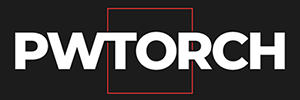
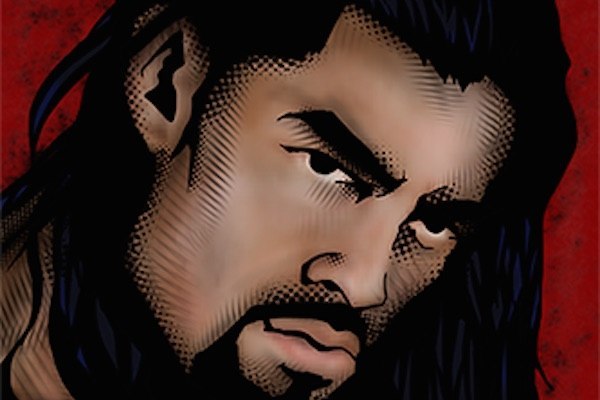
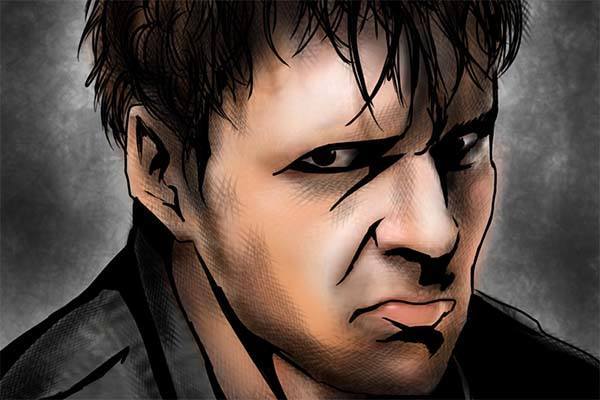
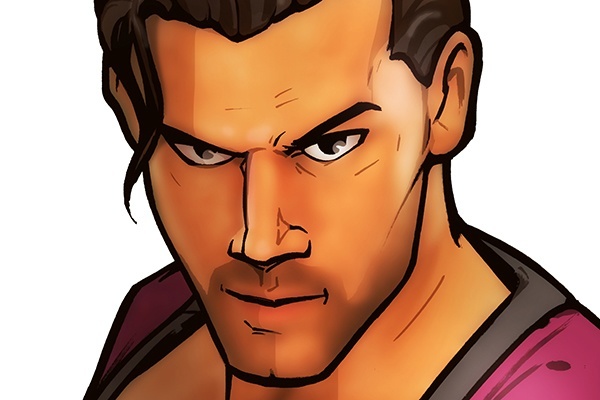
Leave a Reply
You must be logged in to post a comment.